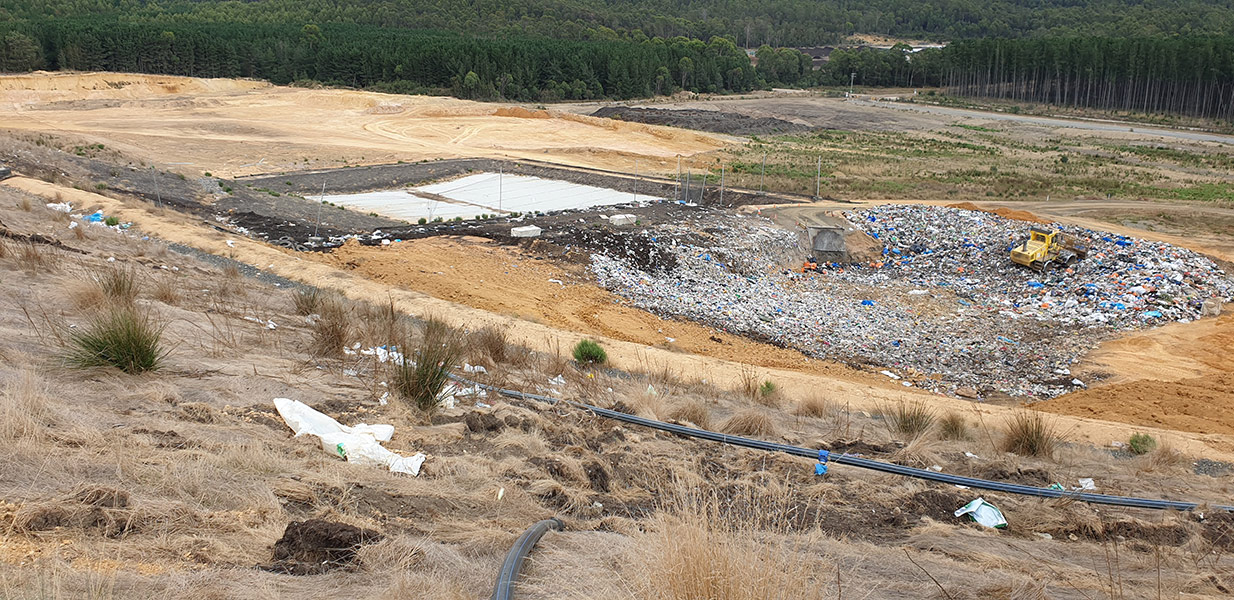Media Release
Upgrade plans submitted for Tasmania’s biggest composting facility
Dulverton Waste Management has commenced a project to upgrade its composting facility near Railton and provide best practice leachate and odour control.
The Dulverton Waste Management (DWM) composting facility is the state’s largest with capacity to divert up to 40,000 tonnes of organic material away from landfill each year.
A Development Permit Application has been submitted to the Kentish Council to construct an industrial compost cover with associated aeration and water management systems to aid the composting process, including the effect of rain. Compost input material includes green waste from the Cradle Coast region’s councils and industry organics from across Tasmania.
The construction plans will complement the arrival of a specialised windrow turner with irrigation which is being delivered to the site later this month.
DWM Chief Executive Officer, Mat Greskie, said that the addition of the windrow turning machine ahead of the facility upgrade will fast-track the environmental outcomes for the community.
“The ability to precisely control the moisture level in a compost pile and provide better aeration through complete windrow turning improves the natural decomposition process,” Mr Greskie said.
“Our plans are designed to improve how we make compost and don’t alter what is permitted under the facility’s existing EPA licence.”
“A well-managed, covered compost system will create even less odour and water run-off than the existing open windrow system.”
“Construction of the industrial cover is the next step in our vision to transform the facility into an entirely enclosed, in-vessel pasteurised compost system delivering full odour-control. This is a large scale program to divert waste from landfill that will benefit Tasmanian industry and the environment,” Mr Greskie said.
Pending approval of the Application for Development Permit, construction of the 120m wide and 180m long cover and associated aeration and water management systems could commence in the second half of this year with an estimated investment of over $5 million.
The compost facility upgrade also creates potential for DWM to process new industry and municipal input stock including food and garden organics (FOGO) collected via kerbside services. Although permitted under the facility’s current EPA licence, FOGO composting has not been undertaken at the site because of limitations with the existing open-air windrow system.
Compost produced at DWM’s facility is used to improve Tasmanian agricultural soils and home gardens with Dulverton Organic Compost available from select nurseries and garden centres across Tasmania and as bulk orders direct from DWM. Residents and industry customers interested in following the progress of the Dulverton Organics Transformation project are invited to register to receive updates by contacting the DWM office on 6424 7344.
END For media comment and interviews, contact:
Mat Greskie, CEO Dulverton Waste Management – 03 6424 7344

